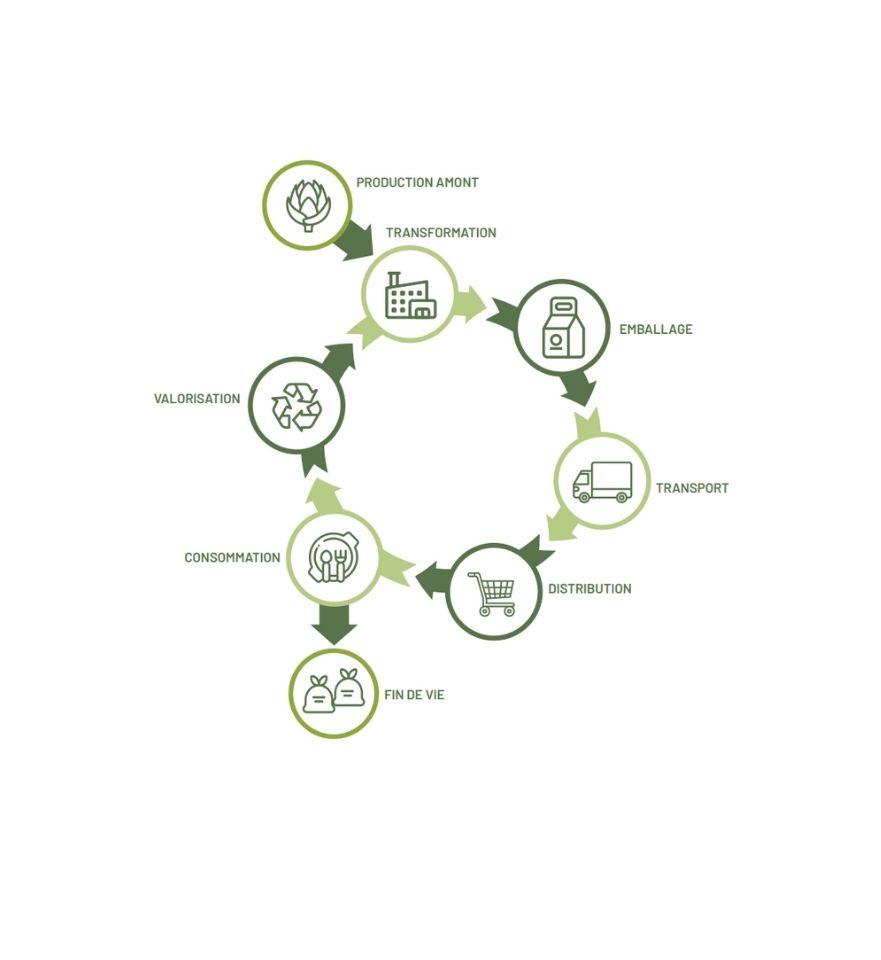Training in CSR and sustainable development
The CTCPA's Sustainable Development team, based in Auch, operates at a national level. It proposes a sustainable development training offer for food companies of all sectors. These trainings are flexible and adaptable to your needs. These trainings are designed to meet the new challenges faced by food companies and to support them in their ecological transition. Some of these courses can be offered in person or remotely (by videoconference).
Our training offer in sustainable development
- Reduce the environmental impact of your products, packaging or services using the Life Cycle Assessment (LCA) method
- Improve your company's environmental performance through eco-design
- Implement a Corporate Social Responsibility (CSR) approach to structure your company
- Optimize water resource management: reduction and reuse
- Reduce food waste in your plant (AGEC Act)
Some of our training courses can be labeled and financed through OCAPIAT schemes. This is the case for the following courses OCAPIAT VSE/SME catalogConsult our training catalog. Registration and complete programs are available via the webcatalogue platform.


Life Cycle Assessment (LCA)
Reduce the environmental impact of your products, packaging or services using the Life Cycle Assessment (LCA) method
Content of the training
- The LCA method: definition and key principles
- What is the purpose of an LCA?
- How is an LCA carried out: the different steps
- Available tools
- Applications of LCA and case studies
The CTCPA's advantages:
- content illustrated through numerous concrete examples of application
- This training can be done remotely.
Duration: 1 day
Target: QHSE manager, QHSE department employee, company manager
Eco-design
Course Content:
- The concept of eco-design
- The challenges of implementing an eco-design approach
- How to implement eco-design in your company: the 6 steps
- Integrate life cycle thinking into your eco-design project
- Successful integration and acceptance of the approach internally
- Communicate on the process
The CTCPA's advantages:
- Content illustrated through numerous concrete examples of application. Emphasis on the key success factors of this type of approach.
- This training can be done remotely.
Duration: 1 day
Target: QHSE manager, QHSE department employee, company managers


CSR approach
Course Content:
- Content of the training
- Principles and issues of sustainable development and CSR
- The concept of CSR
- Why implement a CSR approach?
- How to build a CSR approach?
- This training can be done remotely.
The CTCPA's advantages:
- Practical exercises to learn the concepts covered.
- This training can be done remotely.
Duration: 1 day
Target: QHSE manager, QHSE department employee, company managers
Water: reduction and reuse
Course Content:
- Water resource issues and regulations in companies
- Water consumption and quality in a food processing company
- Carrying out a water diagnosis in your company: measurements and data collection
- The Water Pinch Method: Principles and Issues
- Tools based on the Water Pinch method to optimize water use and reuse
The CTCPA's advantages: Thanks to its experience in research projects (e.g. ANR MINIMEAU project), the CTCPA benefits from a recognized expertise in the field of water consumption reduction in the agri-food industries
Duration: 2 days
Target: QHSE manager, QHSE department employee, company managers


Food waste
Content of the training :
- Issues of food waste at the different links of the chain
- Regulatory context of food waste diagnosis
- How to characterize the plant's losses at each stage of processing
- Implement an action plan to reduce food losses and better valorize its co-products
- How to communicate on the approach
The CTCPA's advantages: Thanks to its knowledge of food companies' practices, the training content is focused on the operationality of the approach
Duration: 1 day
Target: QHSE manager, QHSE department employee, company manager












